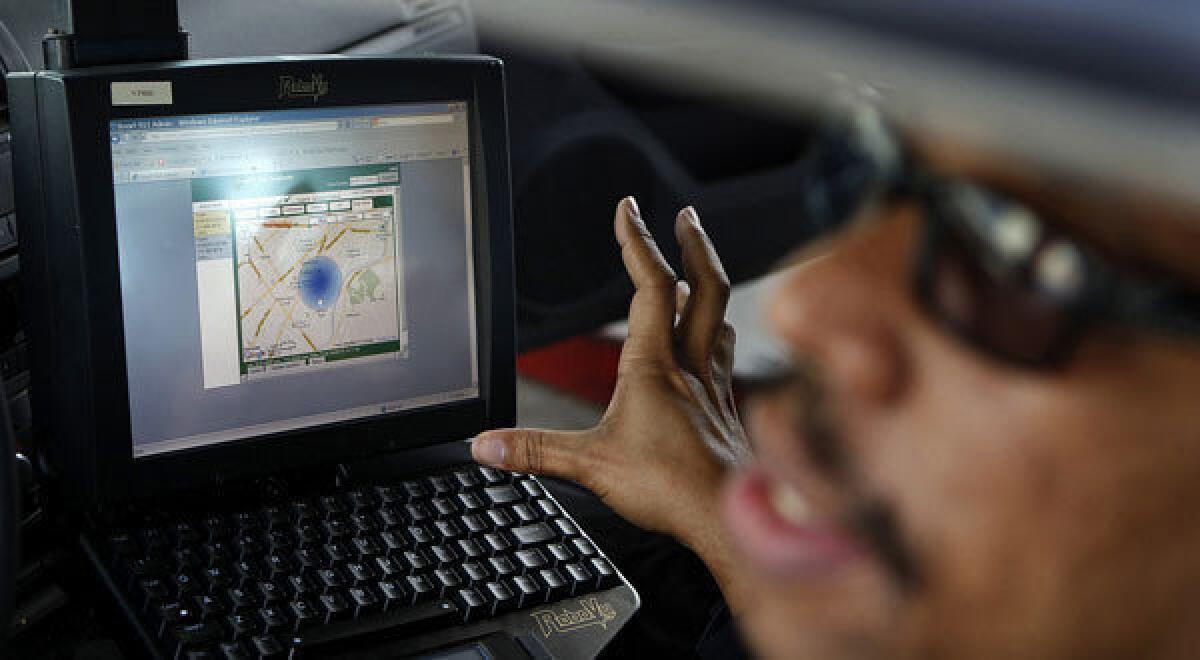911 in Culver City just got smarter

- Share via
When the emergency call came in, all the dispatcher heard was a woman screaming, “I need help!” But the caller hung up without answering any questions.
Typically, dispatchers send police to check a call like that, officials said. But in that instance, a pop-up window on the dispatcher’s computer screen said a child with a rare breathing disorder lived at the caller’s address. So the dispatcher sent an ambulance along with police — a good thing, because the child was having seizures.
The situation in Nashville, Tenn., is one of several examples of the relatively new Smart911 system at work, said Duane Phillips, an emergency communications director there. Earlier this month, Culver City became the only California city to fully deploy the database.
“We’re hoping that all other cities in California will use it,” Mayor Andy Weissman said. “This is valuable on a whole number of levels.”
Los Angeles is exploring similar information systems, said Anna Day Burton, assistant general manager of the city’s Emergency Management Department. The city will soon be soliciting bids to companies that can develop a system for the city, Day Burton added. She estimated that a program could be implemented within a year at a cost of less than $1 million.
Police and fire officials agree that saving time saves lives, and supporters of Smart911 say the system, and others like it, will do just that.
Officials with Rave Mobile Safety, the company that developed Smart911, say that more than 70% of 911 calls are now made on mobile phones, which can offer less information to dispatchers than land lines did in years past. Under duress, some callers forget to mention their severe allergies. Others speak a different language or can’t speak at all. Some are deaf, and many are in danger.
“They are having the worst day of their life when they call 911,” Phillips said.
Smart911 allows residents to create a safety profile online that is connected to a cellphone number or land line. The profile is displayed on a dispatcher’s screen when that number calls 911 and can include a person’s medical conditions, the location of bedrooms in the home — even details about pets at the location. Officials say such information can help 911 call-takers respond faster and more precisely.
Culver City paid $25,000 for three years of the service, Police Lt. Ron Iizuka said. Officials hope that at least 20% of the city’s 40,000 people will eventually create a profile. The database is being advertised on the Police Department’s website, and Iizuka said officers will pass out information at neighborhood watch meetings and go to the city’s senior center to help residents sign up.
“The big key is to get the community to embrace it,” Iizuka said.
Weissman, 62, has already created his free profile. He said he added information on his deaf dog, Spanky, his five grandchildren who frequently visit the house, and on himself.
The mayor said he has already heard from a handful of residents, including Deborah Weinrauch, who have entered their information.
Weinrauch, who directs Friends of Culver City Animals, praised the city for prioritizing public health and safety. She said she was motivated to create a safety profile in part by a friend who died of a heart attack in 2011. She also owns two dogs with orthopedic problems and a deaf cat that she fears would struggle to leave the house in an emergency.
“I don’t think there’s such a thing as being overly protected,” she said. “It’s just an insurance policy that’s very important nowadays.”
Smart911 developers say that since its debut in 2011, the program has expanded to 29 states and more than 350 municipalities. Because its database is nationwide, users in the system can call from any area that uses it and their profile information will be displayed to dispatchers.
Weinrauch thinks Smart911 will take off, at least in her small city.
“It’s more than a luxury,” she said. “It’s a necessity.”
ALSO:
Tests found major flaws in parolee GPS devices
Town hopes for jobs tapping California’s huge oil formation
Affordable housing is again a red flag in ‘green’ Marin County
More to Read
Sign up for Essential California
The most important California stories and recommendations in your inbox every morning.
You may occasionally receive promotional content from the Los Angeles Times.














